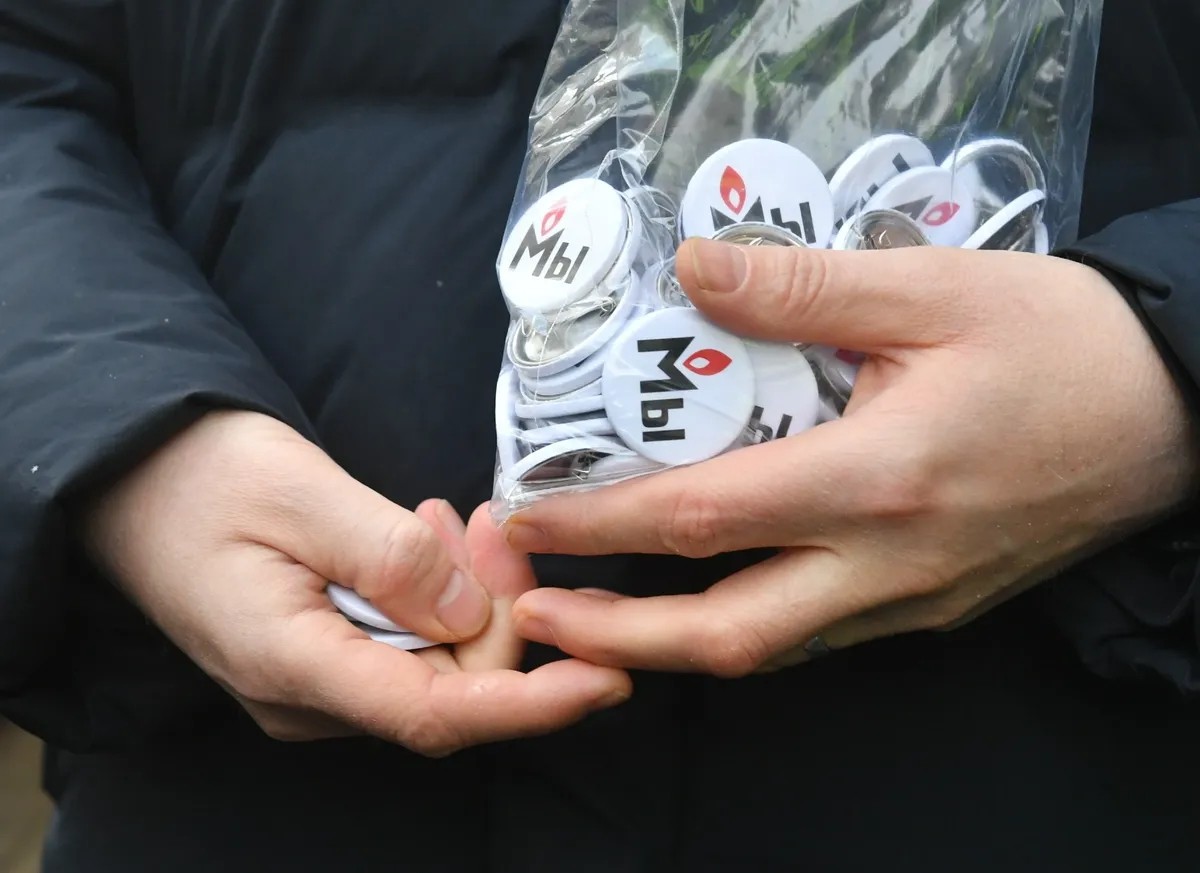
Badges with the symbols of the Memorial Societyю Photo: RIA Novosti
Here what’s in store for you this week:
- We unpack the Supreme Court’s decision to liquidate the human rights group Memorial and show what the rehabilitation of a revolutionary-era double agent tells us about the current state of Russian society.
- We break down Russia’s response to the mass protests in Kazakhstan.
- Plus, we report on the presence of the infamous Wagner Group in the hostilities in the center of Mali.
The Supreme Court’s Decision on Memorial, Explained
This week we unpack the government attack on the country’s most important human rights watchdog and how exactly it marks another dark chapter in Putin’s crackdown on Russian civil society. On December 28, 2021, Russia’s Supreme Court ruled in favour of the Prosecutor General’s request to liquidate the human rights organization Memorial. Our reporter Vera Chelysheva watched the expected, but nonetheless bleak, decision unfold in the courtroom in real time. Meanwhile, our special correspondent Aleksei Tarasov explains what the court’s decision tells us about Russian society.
THE HEARING. During the hearing, the prosecution claimed that the group presented a “distorted historical memory, including of the WWII, and created a false image of the the USSR as a terrorist state.” They event went so far as to claim that the group “rehabilitated Nazi criminals and traitors to the motherland.” Speaking in Memorial’s defense, lawyers Maria Eismont and Genri Reznik highlighted the absurdity of these claims. “Memorial contributes to the health of the nation'', they said. “To wipe it from Russia’s history would be to support the idea that the State is always right, and that power is equal to patriotism.” Of course, the judge sided with the government. Western countries were quick to condemn the ruling, with the United States and the European Union condemning the move as a dark day for any remaining vestiges of democracy and human rights in Russia.
THE MALINOVSKY CONNECTION. The day after Memorial’s liquidation, notes Tarasov, the Supreme Court rehabilitated the double agent Roman Malinovsky. Born in 1876, Malinovsky worked both for the Tsarist secret police and for the Bolshevik Party. He was a close associate of Lenin. After a series of close calls, he was condemned as a Tsarist spy by the revolutionary government and was executed in 1918. So what does this century-old case have to do with Memorial? To answer this question, Tarasov highlights how Malinovsky was constantly changing sides and ideologies, while Memorial has steadfastly adhered to “clear and simple” principles. Tarasov’s damning verdict is as follows: “The decision to rehabilitate him [Malinovsky] against the backdrop of what took place the day before seems to be an assertion of betrayal as the norm.”
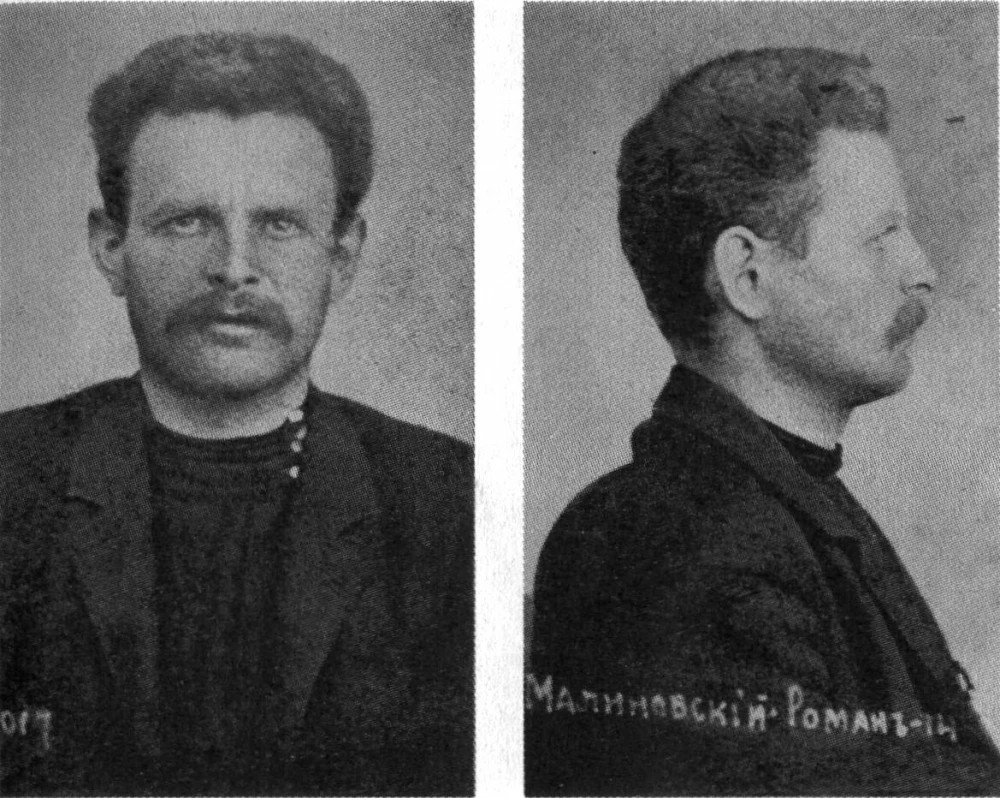
Roman Malinovsky in prison
WHO’S TO BLAME? The Supreme Court is not the sole antagonist, writes Tarasov, but rather represents broader social trends. “The Supreme Court does not mark the road for us”, he says, “it follows us and indicates who we are and where we are.” Implying that individuals in today’s society are more like Malinovsky than Memorial, Tarasov asks: “Where are people with a firm civic and moral core today? So that yes is yes, no is no?”
RUSSIA LIKE A CAGE? Tarasov explores the psychological element of Malinovsky’s multiple identities, arguing that the inability to stand by one set of principles is a pathology plaguing modern Russian society. While the West has “settled down into new realities'' with systems of checks and balances, “Russia is still full of whole individuals, unshakable in their convictions and illusions, and these people, of course, win and retain power using nothing solid.” This pathology, writes Tarasov, is a result of the oppressive conditions of Russian society, which he characterises as a “cage.” In such a society, Memorial’s stubborn adherence to its principles seems “absolutely alien”, while Malinovsky’s multiple personalities and betrayals seem “quite understandable.”
A BLEAK FUTURE. Tarasov sees little hope for Russian society, concluding that living a “double, triple life is fraught with great psychological problems and troubles. The burden of duality is bound to bear ugly fruit.” His analysis is rather Dostoyevskian in its focus on the dark complexities of human nature. But we should not forget that at the end of Crime and Punishment, Dostoyevsky’s most famous novel, there is redemption. While perhaps not as well known, there are plenty of individuals and groups in Russia who stand up for their beliefs. We can only hope that they will produce a different kind of fruit.
BACKSTORY. A 'foreign agent' concept first appeared in Russian legislation in 2012 as an amendment to Russia's nonprofit law. They stipulated that nonprofit organizations that receive foreign funding and participate in political activities must identify themselves as 'foreign agents.' But the definition of 'political activity' is very broad, meaning that it extends to a wide variety of organizations, including environmental or animal rights groups, that aren't engaged in explicitly political activity. Meanwhile, domestic funding in Russia is limited, and the Russian state wouldn't give grants to many of these organizations anyway due to their work's critical nature. As a result, these organizations are forced to seek support abroad and risk being labeled a 'foreign agent,' leaving them open to harassment and intimidation.
Read Tarasov’s full analysis here.
Russia Sending Troops to Kazakhstan, Explained
In the first week of 2022, mass pro-democracy protests erupted across the Central Asian nation of Kazakhstan. Sparked by a sharp rise in energy prices, the protests have a clear political dimension with citizens calling for an end to cronyism, inequality and authoritarianism in the country. In a shock move, President Tokayev requested support from the Moscow-controlled Collective Security Treaty Organization (CSTO) in quelling the unrest. Belarus, Tajikistan, and Armenia contributed to the contingent of approximately 2,500 troops but Russian soldiers constituted the overwhelming majority. Our special correspondent Vladyslav Polovinko highlights how Moscow is exploiting the crisis to expand its colonial influence in the country, as well as explaining the implications of the Russian military presence.
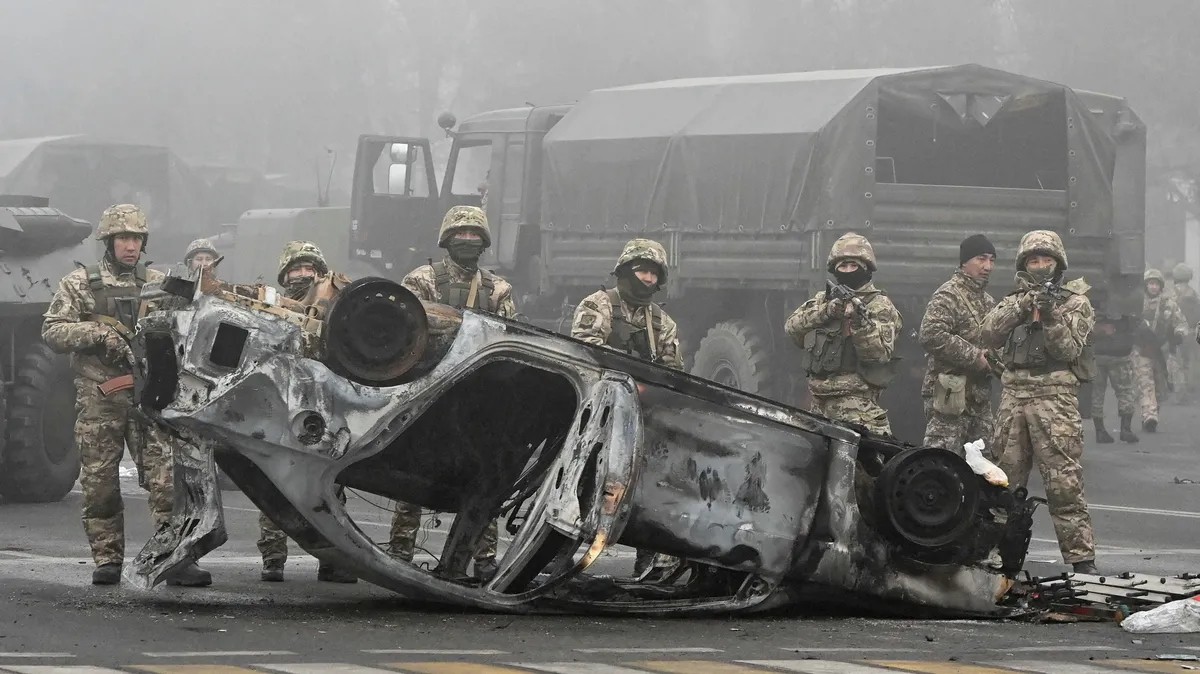
Photo: Фото: Mariya Gordeyeva / REUTERS
A NOT-SO-TEMPORARY PRESENCE. While Tokayev claims that the presence of the CSTO ‘peacekeepers’ is only temporary, Russia is already hinting that it does not mind maintaining a presence in Kazakhstan. This suggestion raises an alarming parallel with the situation in Moldova, where Russian troops have been stationed for over two decades to allegedly maintain stability in the breakaway republic of Transnistria. State Duma deputies Sergei Mironov (A Just Russia) and Leonid Kalashnikov (Communist Party of the Russian Federation) openly suggested leaving the CSTO contingent (or at least its Russian part) in Kazakhstan forever
CREATING ONE’S OWN ENEMIES. Unsurprisingly, a significant number of Kazakhstanis are not happy about a Russian military presence in their country. “This is a legacy of 2014”, writes Polovinko, “when, after the events in Crimea and Donbas, more anti-Russian sentiment began to be recorded in Kazakhstan.” The events of the last year, when Moscow constantly sparred with Kazakhstan over the language issue, certainly did little to foster pro-Russian feelings among the population.
PROPAGANDISTS AND POLITICIANS. A lack of knowledge never stopped Russia’s state mouthpieces from sharing their unsolicited opinions about the countries they consider to be within Moscow’s ‘sphere of influence’. Beyond the usual talk of US-CIA-Soros funded “colour revolutions”, we picked out some of the most egregious quotes from Russia’s propagandists and politicians.
MFA spokeswoman Maria Zakharova engaged in some classic whataboutism with the United States:
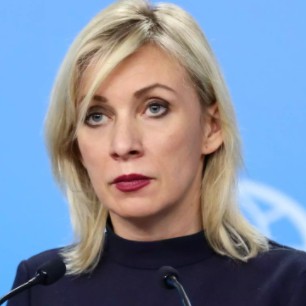
Maria Zakharova
MFA spokeswoman
— If they [liberals] really want to draw parallels, then they'd better remember the Capitol, which American citizens stormed exactly a year ago — on the same day in July. True, the recollection will be unpleasant for them, since they will also have to remind themselves that the American government has brutally suppressed any attempts to doubt its right to defend the constitutional order.
RT’s Editor-in-Chief Margarita Simonyan came out with a colonialist and racist statement of the type we have come to expect from her.
Поддержите
нашу работу!
Нажимая кнопку «Стать соучастником»,
я принимаю условия и подтверждаю свое гражданство РФ
Если у вас есть вопросы, пишите [email protected] или звоните:
+7 (929) 612-03-68
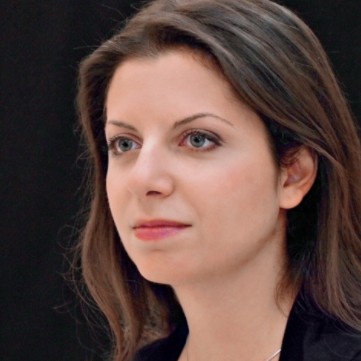
Margarita Simonyan
RT’s Editor-in-Chief
— Of course, we should help. We should definitely help. But some conditions must be set:
- Recognize Crimea as Russian.
- Return to using the Cyrillic alphabet.
- Make Russian the second state language, as it is in Kyrgyzstan.
- Leave Russian schools alone and not lie to the boss.
- Drive out anti-Russian NGOs.
- Institute a coherent fraternal domestic policy that excludes games with the Nazis.
For those who do not speak the language of Russian propagandists, “the boss” here means Putin, while “the Nazis” likely refer to Ukraine.
State Duma deputy from Dagestan Biisultan Khamzayev dropped any pretence of respecting Kazakhstan’s sovereignty:
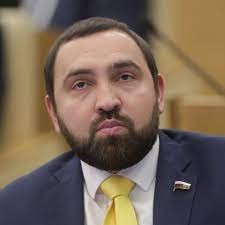
Biisultan Khamzayev
State Duma deputy from Dagestan
— Central Asia is Russian land! There are discussions on the internet about the possible reunification of Kazakhstan with Russia […] I support the holding of a referendum in Kazakhstan on reunification with its historical homeland — Russia.
BACKSTORY. The Russian Empire gained control of Kazakhstan in 1848, after which it quickly colonized other Central Asian territories. The story of the Russian presence in the region has been one of exploitation, discrimination, and displacement ever since. Migrant workers from the region make up a sizable portion of Russia's workforce. In the late nineteenth century, Russian settlers encouraged by the Imperial authorities took over Kazakhstan’s most fertile land and disrupted the people’s traditional nomadic way of life. These structural inequalities persisted throughout the Soviet era. While Kazakhs account for a smaller percentage of Russia’s labour migrant population than other Central Asian ethnic groups, a discriminatory and colonial mindset still characterises the Russian attitudes towards them and their country. Kazakhstan declared its independence in December of 1990 following the collapse of the Soviet Union, but Moscow has continued to view the country through a neocolonial lens.
You can read Polovinko’s full analysis here.
Wagner Group’s Role in Mali, Explained
Kremlin’s ‘shadow army’ continues to haunt the African continent. Our columnist Yuri Safronov breaks down French reports of the presence of the Wagner Group — Russian private military company — in the west African country of Mali.
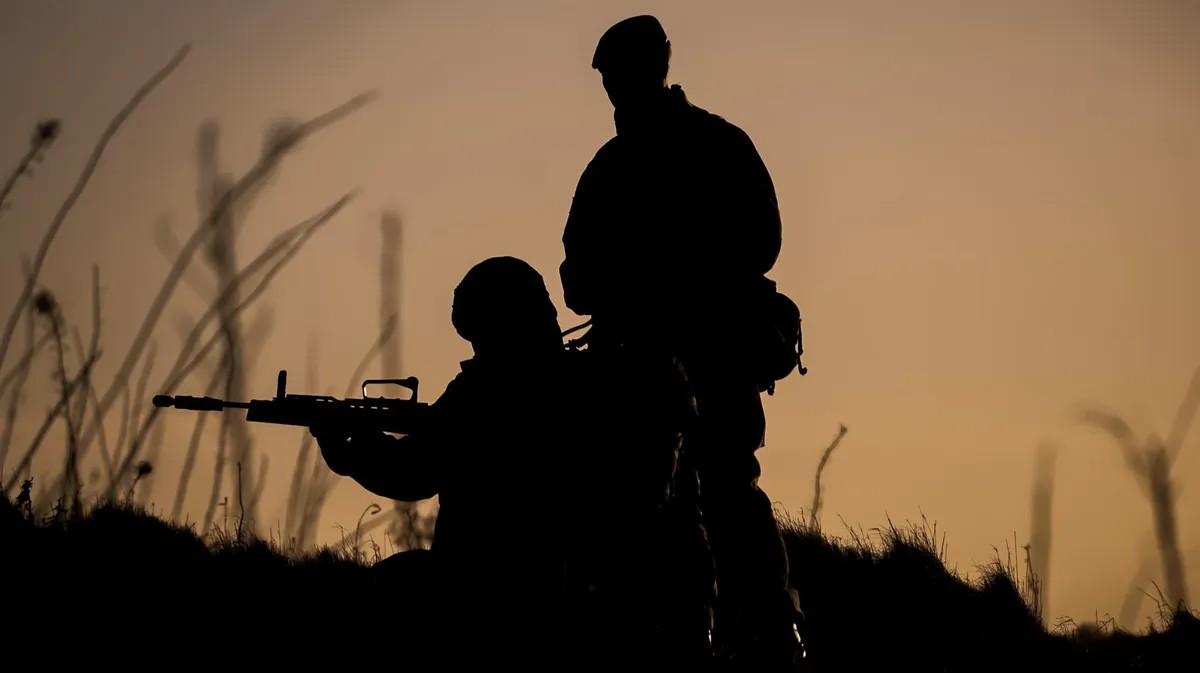
Photo: Getty Images
THE REPORTS. Just after the New Year, international French radio station RFI reported that the infamous PMC Wagner — allegedly owned by close Putin associate Yevgeny Prigozhin — were participating in the conflict in the center of Mali. According to RFI sources the fighting took place in the vicinity of the village of Mandoli near the city of Bandiagara on Monday, January 3. The reports state that the Wagner mercenaries were fighting with the Malian army against jihadists.
HOW BIG IS THE WAGNER PRESENCE? An RFI source stated that 300 to 350 Wagner fighters arrived in Mali last week, and that most are in the Segou province (the city of Segou is 80 km from Bandiagara). The Malian military government denies any cooperation with the PMC. If the reports are correct, this would be Wagner’s first combat experience in the country.
THE INTERNATIONAL RESPONSE. In December, 2021, the Foreign Ministries of 15 Western countries including France, the United Kingdom, and Canada, released a joint communique stating that they “strongly condemn the deployment of mercenaries on Malian territory.” The Malian military government released its own statement on December 25 refuting the claims.
IS THERE ANY PROOF? On January 4, France 24 released satellite imagery, photographs, and data from the Flightradar24 website, which they say proves the deployment of Wagner mercenaries. They reported military installations — including tents, trucks, and armoured vehicles — near a Malian Air Force base. French ‘government sources’ told the news outlet Le Monde that the “entire operation was carried out […] with the funds from the Russian armed forces and was monitored by Wagner Group operatives.”
WHY IS FRANCE INVOLVED? Mali was a French colony until 1960 and Paris has maintained influence in the country since that time. President Emmanuel Macron has made several attempts to persuade President Putin not to use Wagner mercenaries in Mali, but Russian authorities continue to deny any connection between the PMC and the State.
BACKSTORY. Founded in 2013, the Wagner Group gained international notoriety through its shady dealings and human rights abuses on the African continent. The group has been linked to Kremlin-linked fixer Yevgeny Prigozhin, known as “Putin’s chef” due to his lucrative catering contracts with the Kremlin. Prigozhin has been doing the Kremlin's 'dirty work' everywhere from Africa, Syria, and Russian «troll factories». He is under US sanctions. Novaya Gazeta has faced attacks from Prigozhin for the better part of a decade. Apart from geopolitical flexing, Africa is a growing arms and natural resources market for Russia. Prigozhin is helping with the logistics of this expansion. Apart from the Central African Republic, the Kremlin is also heavily engaged with Sudan, Libya, Mozambique, and Madagascar. The details of the Kremlin's 'big return to Africa' are often classified or concealed from the public eye.
Read Safronov’s report here.
Bonus Round
On December 31, 1994, Russian troops entered the capital of the Chechen Republic. The first Chechen War had begun 20 days earlier on December 11. Former military intelligence officer Ruslan Klupov gave Novaya his exclusive eyewitness account of this critical moment. He evokes the expected bloodshed and chaos of war, but also the rare moments of light. His opening description is novelistic in tone: “The weather was excellent. A light frost invigorated us, and the sun, at times peeking out from behind the clouds, gave us hope. What can you dream of in a war? Everyone has their own dreams, but all of us dream that we will return home where our loved ones were waiting for us.” Apart from himself, the main protagonist of Klupov’s tale is his old friend senior lieutenant Dmitry Adenin who is severely wounded, but survives.
Klupov does not blame the Chechen people for the war, but rather the propaganda that made them believe the Russian government intended to deport and kill them. “All this propaganda work made it possible to create a 62,000-strong armed contingent, ready to defend themselves, their loved ones, their people, their homeland”, he writes. The spectre of conflict still looms over the republic, says Klupov: “In the end, we won! The wounded Chechen Republic today has the opportunity to develop peacefully, but the evil of the incessant war and centuries-old confrontation between the Vainakh mountaineers and the Russians is still smoldering there.”
The conclusion to Klupov’s account is both wry and poignant. At the beginning, he recalls Adenin receiving a New Year’s care package with homemade food, saying he will save it for later. At the end, Klupov finds the package — opens it — and is overwhelmed by the rotting food. “In war, you must eat everything at once”, he writes — echoing his advice from the start — “You may not have time to eat it tomorrow.”
This newsletter drop is written and edited by several journalists at the Novaya Gazeta newsroom. Please, support our work by promoting our newsletter with #RussiaExplained hashtag on social media.
To keep up with Novaya Gazeta’s reporting throughout the week, you can follow us on Facebook, Twitter, Instagram, and Telegram. Our video content is available on Youtube and don’t forget to visit our website for the latest stories in Russian.
The Novaya Gazeta Team